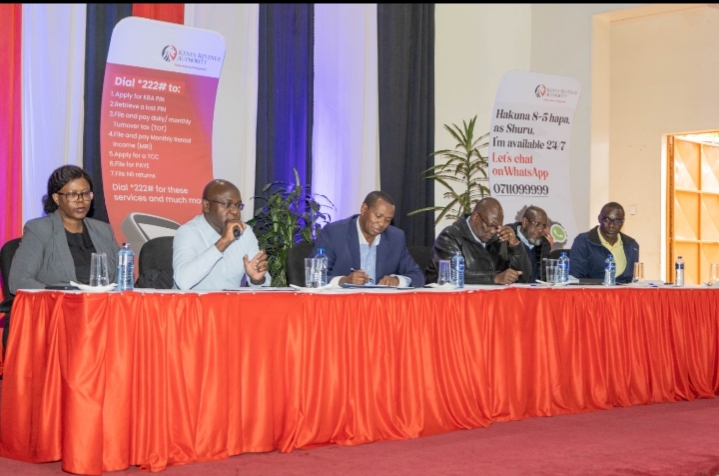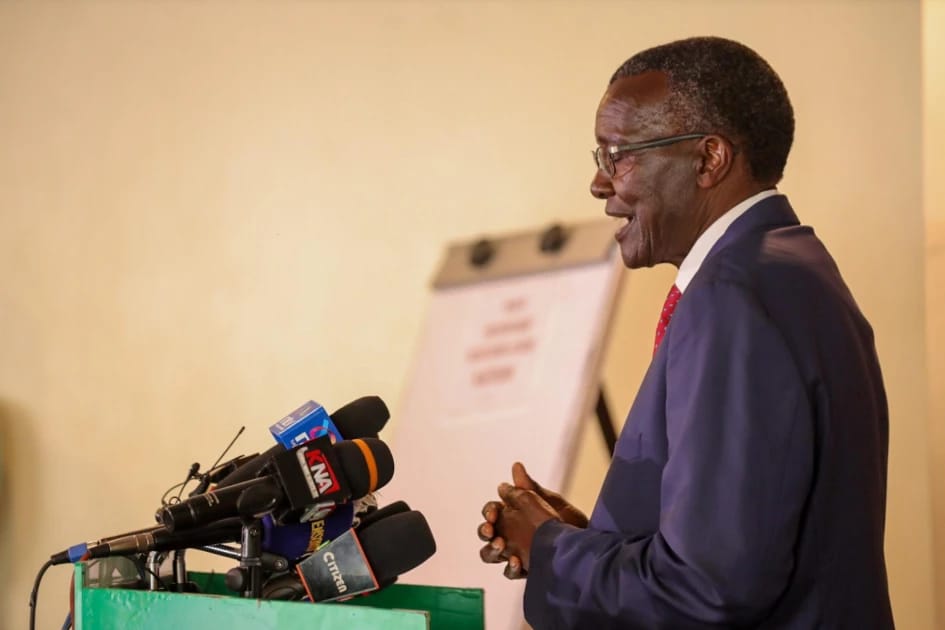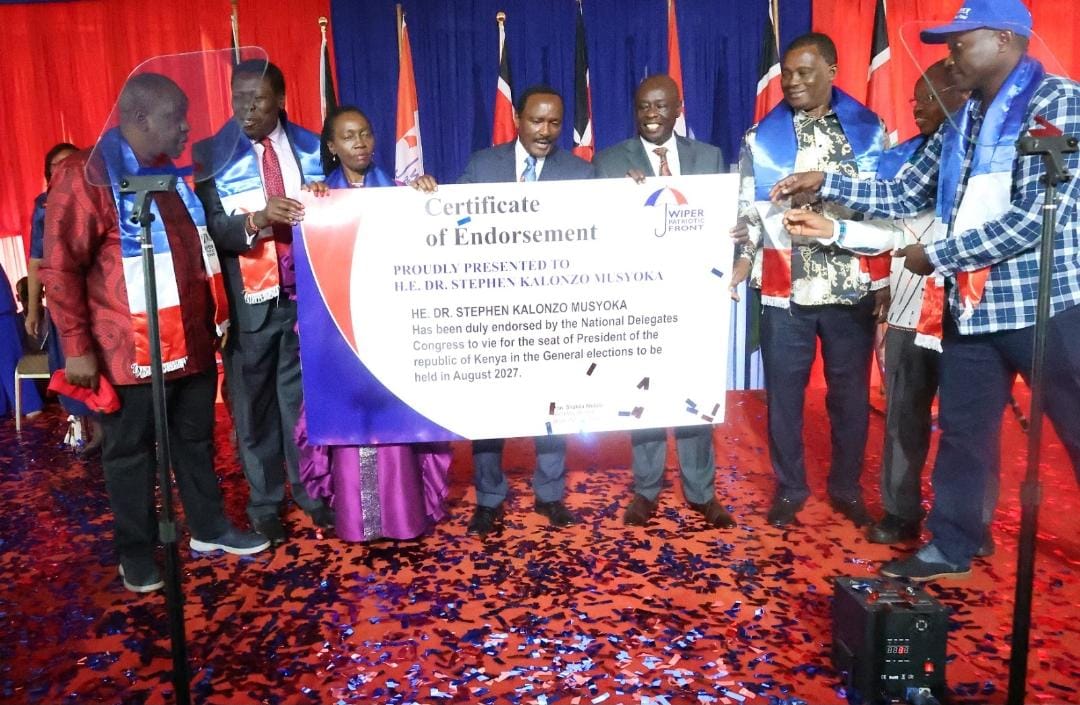Women Urged to Drive Change in Africa’s Leadership

The Vice Chancellor of the Catholic University of Eastern Africa (CUEA), Fr. Prof. Stephen Mbugua Ngari speaking at International Conference on the Bible.
The Vice Chancellor of the Catholic University of Eastern Africa (CUEA), Fr. Prof. Stephen Mbugua Ngari, has called on women to play a pivotal role in shaping Africa’s future by “midwifing” a new generation of leaders.
Speaking at the International Conference on the Bible, Fr. Mbugua emphasized the need for transformative leadership to address the continent’s pressing challenges, including conflicts, migration, and socio-economic disparities. He described the role of women in Africa as “salvific,” highlighting their crucial contribution to the continent’s progress.
The Role of Women in Leadership
Fr. Mbugua pointed to the significant impact women can have in various sectors, including health, education, and social work. “We have religious women who are very active,” he said. “These are the subtle, soft voices that continue to speak to society.” He acknowledged the progress made by women in these areas, noting that they are not starting from scratch, but rather building on existing foundatioConference Focus on Women’s Empowerment
READ:https://www.kenyanews.go.ke/government-to-equip-youths-with-skills-for-job-the-market/
The three-day conference, organized by CUEA, Catholic Biblical Centre for Africa and Madagascar/Nairobi (CEBAM), and the Institute of Missiology Aachen – Germany, brings together scholars to discuss topics such as women’s leadership in the Bible, biblical teachings on women and marriage, and African women’s interpretations of scripture. The event aims to provide a platform for women to share their experiences, challenges, and successes, and to explore ways to support and empower them in their roles.
Celebrating Women’s Achievements
Fr. Mbugua cited examples of African women who have made a significant impact, including Kenya’s Wangari Maathai and South Africa’s Miriam Makeba, who fought against apartheid. He also acknowledged the many unsung heroes, including women religious and educators, who are shaping the attitudes and opinions of African leadership.
Addressing Challenges and Stereotypes
However, Fr. Mbugua also highlighted the challenges women face in Africa, including cultural and societal stereotypes that limit their potential. “We need to change the paradigm, so people can think differently about women and their capabilities,” he said. The conference provides an opportunity for scholars and leaders to come together and discuss ways to address these challenges and promote women’s empowerment.
A New Era of Leadership
The CUEA VC expressed optimism about the growing number of women leaders in Kenya and their increasing representation in universities, noting that this shift is yielding tangible results. “Transforming the political landscape and socio-economic structures can signal change in the many issues Africa continues to face,” he said, drawing a biblical parallel with the story of Esther, who played a pivotal role in delivering the people of Israel from destruction.





